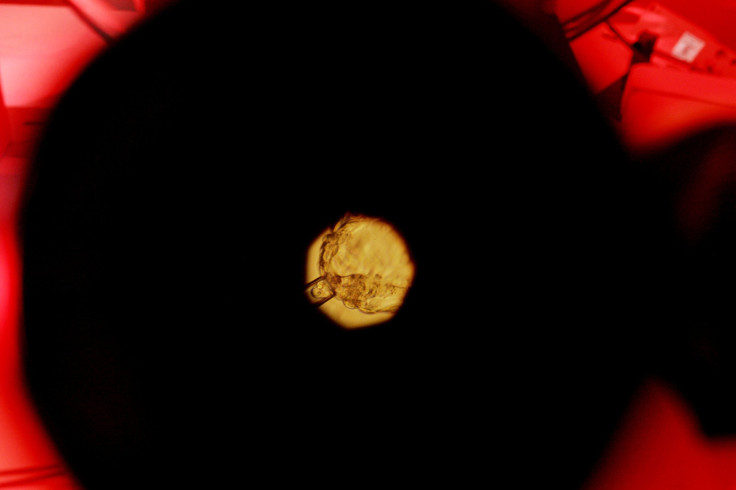Human Embryo Genetic Modification: Chinese Researchers Report Another Attempt At Controversial Procedure

Last April, a team of Chinese researchers announced that it had, for the first time ever, successfully tweaked a gene in a human embryo. Now, a year later, another Chinese team reported using the same technique — known as CRISPR/Cas9 — in an attempt to create HIV-resistant embryos.
According to a paper detailing the findings of the experiments, published in the Journal of Assisted Reproduction and Genetics, the technique was performed on 45 fertilized, non-viable human eggs. The scientists were able to introduce a naturally occurring genetic mutation named CCR5 Δ32 into the embryos. This mutation, when present in humans, makes the T-cells, which are a subtype of white blood cells, immune to the HIV virus.
Of the 45 embryos injected with the RNA instructions during their one-cell stage, only 26 developed into eight-cell embryos and beyond. And, out of these, only four acquired the desired mutation.
Editing human embryos is problematic because it could have long-term, unintended consequences. One such effect, wherein a surprising number of “off-target” mutations that act on other parts of the genome come into being, was visible in this particular study as well as the previous one carried out last year.
“The results are both comforting and disturbing,” Peter Donovan, a professor of biological chemistry and development cell biology at the University of California, who was not involved in the research, told the Verge. “The good news is that the technique worked for this group in the same way that it did for the first group. This indicates the reproducibility of the science. However, this group of researchers also reproduced another finding described by the first group, namely that this type of gene editing also causes off-target effects.”
Ethics remains another major area of concern insofar as genetic engineering of human embryos is concerned, with many raising the specter of “designer babies” — à la Aldous Huxley’s “Brave New World.” As a result, although scientists across the world are now opening up to research that uses the CRISPR/Cas9 technique, implanting the modified embryos inside a woman remains illegal.
All the embryos modified in the latest experiment were destroyed within three days’ time.
“This work has implications for the development of therapeutic treatments of genetic disorders, and it demonstrates that significant technical issues remain to be addressed,” the researchers wrote in the study. “We advocate preventing any application of genome editing on the human germline until after a rigorous and thorough evaluation and discussion are undertaken by the global research and ethics communities.”
© Copyright IBTimes 2024. All rights reserved.






















